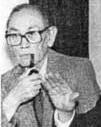Korematsu Day

Celebrating a man who never gave up on his rights
|
On January 30, 2011, California celebrated its first Korematsu Day, a holiday established to honor Fred Korematsu, a Japanese American who displayed courage and bravery during one of the darkest periods in U.S. history. Fred Who?In 1942 during World War II, Fred Korematsu, a 23-year-old welder, defied military orders and refused to go to an internment camp. He was arrested and taken, along with his family, to the Tanforan Race Track Assembly Center in San Bruno, CA. They later were transferred to the Topaz incarceration camp in Utah. He challenged the military order in the U.S. Supreme Court, which in 1944 upheld Korematsu's conviction, ruling that the forced removal of Japanese Americans was justified by "military necessity." In all, some 120,000 Japanese Americans were detained in internment camps—officially called "relocation centers"—in California, Idaho, Utah, Arizona, Wyoming, Colorado, and Arkansas. Korematsu spent the next four decades blemished by a disloyalty conviction that prevented him from finding full-time welding work. He never gave up on righting the wrong done to him, however. In 1983, Korematsu filed suit to reopen his case using evidence found by lawyer Peter Irons. While researching a book on internment cases, Irons came across evidence that during Korematsu's trial the government had suppressed reports from the FBI and military intelligence, which concluded that Japanese American citizens posed no security risk. On November 19, 1983, a federal judge in San Francisco overturned Korematsu's conviction for resisting internment. In 1988, Congress passed legislation apologizing to internees and sent $20,000 checks to every camp survivor. His Conviction Became EducationFor the rest of his life, Korematsu continued to champion the cause of civil liberties. He not only spoke out for Japanese Americans who were wrongly incarcerated, but also traveled the country advocating for the civil rights of others who were victims of excessive government action. In 1998, President Bill Clinton awarded Korematsu the Presidential Medal of Freedom, the nation's highest civilian honor. "After my father's conviction was overturned in 1983, his focus and mission was education," said Karen Korematsu. "He believed it was important to teach about his struggle for justice and the Japanese American incarceration so that the mistakes of history would not be repeated in the future." Korematsu died in 2005 at age 86. The Continued Need to Protect Civil LibertiesLillian Lim first learned of the relocation and incarceration of Japanese Americans through her father. A World War II army veteran and Filipino, he described many acts of discrimination against his fellow Americans. Years later, when Lim was a professor of law, she became concerned that the historical significance of the Korematsu case would be lost. She shared this concern with Maria Pe, a lawyer, who suggested a Fred Korematsu Day. Their idea was to establish a day to acknowledge the importance of civil rights and discuss the continued need to protect civil liberties. An ad hoc committee was then formed to establish Fred Korematsu Day. On September 23, 2010, Governor Arnold Schwarzenegger signed the Fred Korematsu Day of Civil Liberties and the Constitution bill, setting aside a day to celebrate a man who refused to give up his civil rights and a reminder that we must continue to protect our own. |
 Fred Korematsu Related Links
For More InformationThe San Francisco Museum: Colorado State Archives:
Univ. of Washington: |
About the author







